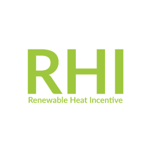Answer these simple questions and we will find you the BEST prices
Which type of solar quotes do you need?
It only takes 30 seconds
100% free with no obligation

Get up to 4 quotes from our selected suppliers by filling in only 1 form

Save money by comparing quotes and choosing the most competitive offer

Our service is 100% free and with no obligation
- GreenMatch
- Green Energy
- Green Energy Grants
- The Green Deal
The Green Deal
The Green Deal: What Is It
This page mentions the Green Deal because it was an important incentive, however, funding from the government for this incentive has ended. Some components of this incentive, like the Green Deal Assessment, are ongoing and existing loans will continue.
At the moment, if you would like to apply for the green deal, you still can. There are providers financing this scheme themselves.
The Scheme
To help its citizens with the installation of energy saving measures such as boilers, double glazing and solid wall insulation, the UK government has created multiple incentives. One of these incentives is the “The Green Deal” which contained several components: 'Green Deal Assessment,' 'Green Deal Home Improvement Fund (GDHIF),' 'Green Deal Finance' and 'The Energy Company Obligation (ECO)' (a program operating alongside The Green Deal). Although there are several green deal energy suppliers, these incentives help channel specific retailers.
Green Deal Assessment
The improvement which will be carried out will need to be approved by a Green Deal assessor, which will provide a Green Deal Advice Report, listing the improvements that are possible, and which of these will be cost-effective. The assessment costs between £100-150, but you can get a refund by applying for a voucher, however, only if the installations comply with the scheme terms and conditions.
The Green Deal assessor will produce a Green Deal advice report made up of two documents:
Green Deal Home Improvement Fund (GDHIF)
The Green Deal Home Improvement Fund is >no longer active. But to be complete we will discuss it in this section.
Types of Funding
The Green Deal Home Improvement Fund presented several offers which homeowners could choose from, depending on the home improvement that was carried out. They were as follows:
Eligibility
Homeowners needed to meet certain criteria to apply for the Green Deal Home Improvement Fund. These were:
If you as a homeowner were already benefiting from other schemes on the same improvements, then you were not eligible to apply for the GDHIF.

Green Deal Finance
Since July 2015 The Green Deal Finance Company has been fulfilling a different role from its original one.
Private companies known as Green Deal Providers are responsible for providing the financial means to make green energy home improvements. The funds provided by such companies may come from in-house funds or from external financiers. The loan is to be repaid with interest through a charge added on the electricity bill. The amount of money that can be borrowed is limited, calculated by what a typical energy user might save on their energy bills from installing and improvements. Therefore, there exists the possibility that a Green Deal Loan may not cover the full cost of the installation.
Green Deal Finance Company
The Green Deal Finance Company (GDFC) was responsible for training and instructing Green Deal providers, which meant the following:
The UK government no longer funds the Green Deal Finance Company, so their role of financing new loans has changed into managing the current Green Deal plans.
The Energy Company Obligation (ECO)
The Energy Company Obligation is a program that was introduced in the UK in 2013. It places legal obligations on the energy suppliers to deliver energy saving measures to domestic energy users. The program operated alongside The Green Deal, providing additional support in the domestic sector.
ECO In Depth
Under the Energy Company Obligation, energy suppliers are obliged to improve the energy efficiency of their customer’s homes in three fields:
Fill in the form in just 1 minute
We strive to connect our customers with the right product and supplier. Would you like to be part of GreenMatch?





